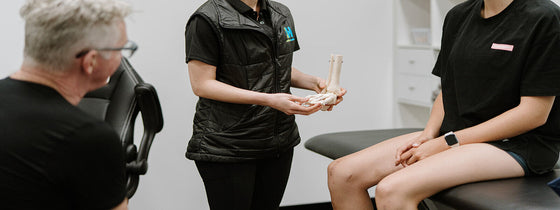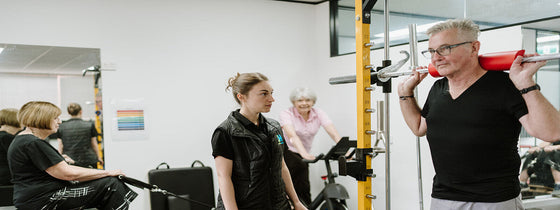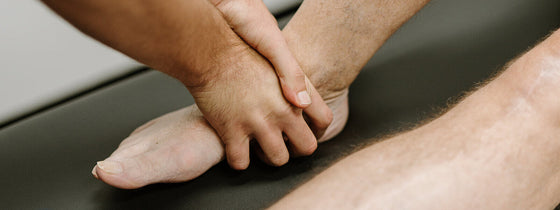The rotator cuff is a complex set of muscles located around the shoulder joint. Supraspinatus, subscapularis, infraspinatus and teres minor are the four muscles that collectively make up the rotator cuff, and they all play different roles to help your shoulder move efficiently. Ultimately, the muscles attach from the scapula (shoulder blade) and attach to the humerus (upper arm bone) and work with the ligaments in the joint to move, control and make the shoulder stable and useful!
A surgical rotator cuff repair can be required when a person suffers an acute or traumatic tear of one of the muscles and/or the tendinous attachments. Generally, these traumatic tears occur with heavy load occurring through the shoulder joint (like when you lift something heavy or awkwardly or heavy and awkwardly). They can also happen when a shoulder dislocates and/or when someone falls onto an outstretched arm putting excess strain through the joint. However, trauma can also occur slowly over time with repeat micro-traumatic movements. These repeated movements, like a tradesman using a hammer overhead all day, can place ‘overload’ onto the tendons and muscles over weeks, months or years that result in painful movements and damage to the tissues.
Our team of Physiotherapists are highly trained to assess and diagnose rotator cuff tears. A careful history and physical assessment is performed on the shoulder to assess range of motion, detect painful areas with palpation and note any loss of strength. Things we often hear from patients include acute fall recently, traumatic incident with something heavy in hand, a gradual onset over time as a result of occupational or gardening movements, pain disturbing their sleep, pain with lifting, achiness or sharp pains over-head activities and signs of muscle weakness.
Generally, if a rotator cuff tear is suspected your Physio may recommend imaging for confirmation and accurate measurement of tear size. This imaging information, combined with your clinical assessment, helps us create the best plan to address your goals.
Depending on the severity of the tear, different surgeries and interventions may be required to help this tear heal. Shoulder surgeries can be open or arthroscopic in nature and, if we are needing to progress into this pathway, we refer you to a trusty Orthopaedic surgeon for expert care. Nowadays orthopaedic surgeons will often require a period of prehabilitation (prehab) before surgery, to enhance the post-operative success rates, and one of our expert OHL physiotherapists can create and facilitate this programming for you. The primary aim of prehab is to avoid pain and further injury while building strength, range and stability in your shoulder and the surrounding musculature. In the long term this helps to better prepare the shoulder heading into surgery while also improving outcomes and recovery following surgery.
Following surgery, it is normal for a patient to be quite sore and to spend a number of weeks in a sling to protect the newly repaired rotator cuff. It is vital that patients listen to advice from their surgeon and physio to ensure further damage does not occur in this very critical stage of recovery, and, together with your surgeon, we will make sure we help you understand what you can and can’t do in that initial month (this includes cleaning, working, exercise and lifting). In the initial stages post-surgery often patients are expected to start gentle passive pendular movements, begin moving the shoulder joint (with support of the other arm), commence early strength work and ensure your elbow/ hand is moving fully once again. This is all guided by your physiotherapist within a protocol from your surgeon. Following surgery people will often spend time rehabbing at home, doing exercises at their local gym and/or they can join our group physiotherapy classes; this is all up to you and often differs in each stage of your shoulder recovery. Lastly, depending on the surgery, severity of the injury and many other factors (such as persons age and general health) we admit the recovery time can vary from person to person. However, we can guarantee our team will be upfront with your individualised (yet specific) return to work, return to spot and ‘final stage rehab’ timeframes as rehab progresses.
If you (or someone you know) has suffered a rotator cuff tear, or is suffering from shoulder pain in general, our Physiotherapy expert team are highly equipped to assess, diagnose and treat these injuries. Please get in touch with our OHL reception team if you need to book someone in to have their shoulder assessed and/or to start post-operative rehab with us. You can book online via our website or call us on 9431 5955.

If you're experiencing back or neck pain with neurological signs and symptoms, a thorough neurological examination is crucial for accurate assessment and effective treatment. In this Optimal Tip learn more about what we mean by completing a neurological exam!

Squats, deadlifts, and calf raises are key movement patterns that should be part of every strength and conditioning program—regardless of age and activity level. These functional movements support joint health, improve posture and balance, and reduce the risk of injury while building strength where it matters most.

A ganglion cyst is a fluid-filled swelling that typically forms over a joint or tendon sheath, causing discomfort and pain, especially when pressing against nerves or joints. Proper assessment and treatment, including physiotherapy, are essential for managing symptoms and improving function in the presence of a ganglion in your hand, foot, or wrist.